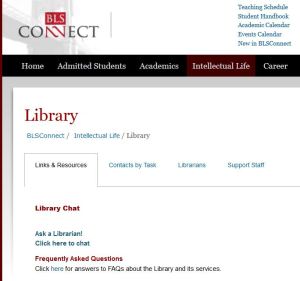Last week the United States Supreme Court unveiled its calendar for the upcoming year. While the issues argued and decided may not bring the same level of national attention as same-sex marriage and the Affordable Care Act, the Court will be deciding several controversial issues. Those issues concern legislative prayer, campaign finance, affirmative action, and recess appointments. Other important procedural issues scheduled for argument include personal jurisdiction, venue, removable class actions, and abstention.
To stay on top of the High Court, follow the legal news sources below.
- BNA’s United States Law Week, Supreme Court Today (If off-campus, implement the proxy instructions)
- The National Law Journal (Contact the reference desk for username and password information)
- SCOTUSblog (Sponsored by BloombergLaw)
- United States Supreme Court Actions (Available through Westlaw)



